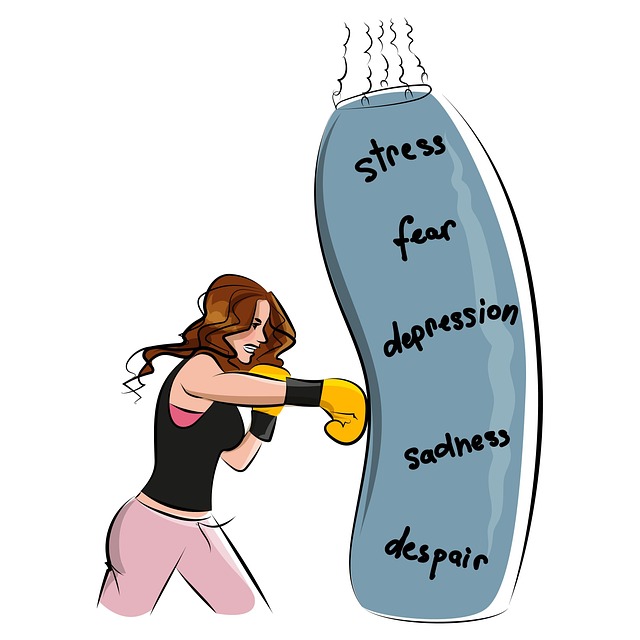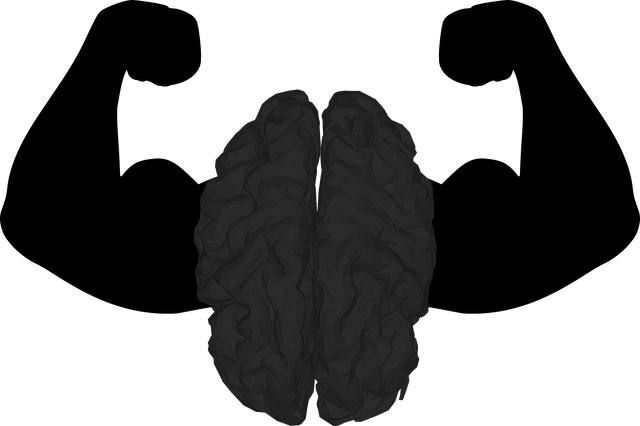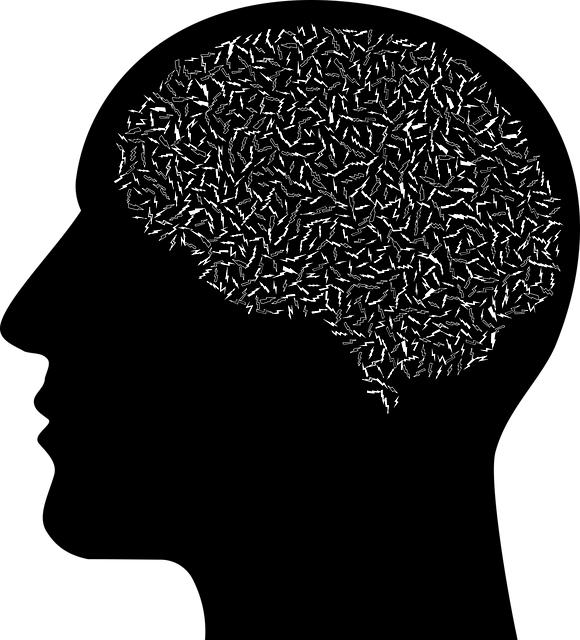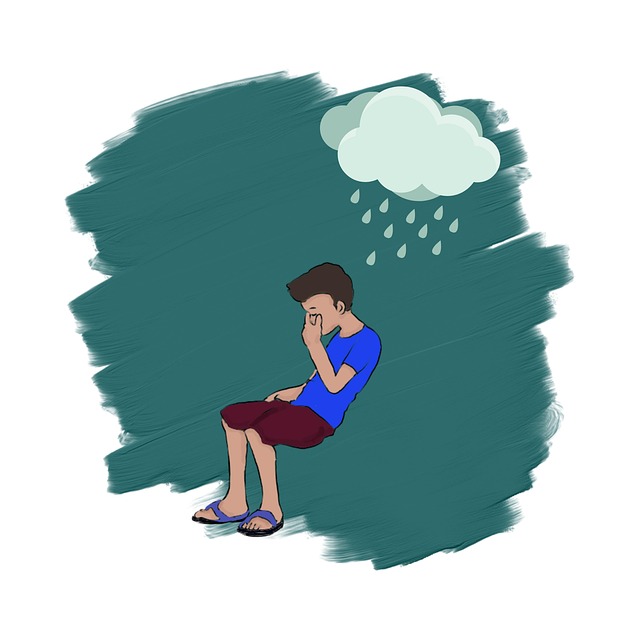Mental health education is a powerful tool to combat stigma and empower individuals, especially in communities like Arvada where chronic illness therapy is vital. Program designers should create inclusive spaces through interactive workshops, group discussions, and personal narratives to challenge stereotypes and provide diverse perspectives. Tailoring programs to specific groups, such as adolescents, young adults, or seniors, ensures relevance and accessibility. Arvada Chronic Illness Therapy emphasizes engaging curriculum with diverse learning experiences, including mindfulness strategies and cultural competency training, for effective knowledge transfer and skill retention. A supportive and inclusive environment is crucial for open dialogue and active engagement, fostering self-esteem and personalized coping mechanisms. Continuous evaluation through both quantitative and qualitative methods ensures program improvement and better outcomes, empowering individuals to manage their well-being effectively.
“Unveiling the power of mental health education, this comprehensive guide explores effective program design for communities in need. By addressing the pressing issue of stigma and misconceptions, we aim to empower individuals through knowledge. We’ll navigate audience segmentation, crafting tailored curricula for diverse groups. From engaging learning materials to implementation strategies, ensuring a supportive environment is key. Evaluating impact is crucial for Arvada Chronic Illness Therapy’s success, fostering continuous improvement in mental health literacy.”
- Understanding Mental Health: Breaking Down Stigma and Misconceptions
- Identifying Target Audiences: Tailoring Education for Different Groups
- Curriculum Development: Creating Engaging and Effective Learning Materials
- Implementation Strategies: Delivering the Program in a Supportive Environment
- Evaluating Impact: Measuring Success and Continuous Improvement
Understanding Mental Health: Breaking Down Stigma and Misconceptions

Understanding mental health is a critical first step in combating stigma and misconceptions prevalent in society. Stigma often prevents individuals from seeking help, leading to unnecessary suffering. By integrating education on mental wellness into mainstream discourse, we can foster an environment of empathy and support. This initiative is especially crucial for communities like Arvada, where chronic illness therapy services play a vital role in addressing mental health concerns.
Program designers should focus on creating inclusive spaces that encourage open conversations about mental health. Through interactive workshops, group discussions, and personal narratives, participants can challenge stereotypes and gain insights into the diverse experiences of individuals dealing with various mental health issues. This knowledge is essential for promoting early intervention and effective risk management planning (for mental health professionals), as it enables better support systems within communities.
Identifying Target Audiences: Tailoring Education for Different Groups

Identifying target audiences is a crucial step in designing an effective mental health education program. This process involves understanding the unique needs and challenges faced by different groups within the community. For instance, a program focused on improving mental well-being might offer specialized workshops for adolescents, young adults, parents, or individuals dealing with specific chronic illnesses like those seeking Arvada Chronic Illness Therapy. Tailoring educational content to these diverse groups ensures that the information provided is both relevant and accessible.
When designing sessions, consider the varying levels of understanding, prior knowledge, and cultural backgrounds among participants. For example, a community outreach program implementation targeting seniors might emphasize the importance of social connections and self-care routine development for better mental health, while stress management techniques could be more beneficial for working professionals. By recognizing these differences, educators can create engaging and impactful programs that resonate with each target audience.
Curriculum Development: Creating Engaging and Effective Learning Materials

Curriculum development for a mental health education program requires crafting engaging and effective learning materials that cater to diverse learners. This involves incorporating interactive elements, real-life scenarios, and varied teaching methods to ensure comprehension and retention. For instance, integrating mindfulness meditation techniques alongside traditional lectures can enhance students’ ability to manage stress and anxiety, making the learning experience more practical and relatable.
At Arvada Chronic Illness Therapy, we understand that addressing mental health effectively demands a multifaceted approach. Thus, our curriculum designers emphasize depression prevention strategies, cultural competency training for healthcare providers, and accessible presentation formats. By balancing theoretical knowledge with practical skills, we aim to equip individuals with the tools necessary to navigate and improve their mental well-being, ultimately fostering a more resilient and informed community.
Implementation Strategies: Delivering the Program in a Supportive Environment

Implementing a mental health education program requires careful consideration of the environment to ensure its effectiveness and accessibility. Creating a supportive setting is essential for participants’ comfort, especially when addressing sensitive topics. The space should foster open dialogue and encourage active engagement, allowing individuals to share their experiences and learn from one another in a non-judgmental atmosphere. This can be achieved by designing an inclusive environment that respects diverse backgrounds and perspectives, particularly when dealing with cultural sensitivity in mental healthcare practice.
At Arvada Chronic Illness Therapy, we recognize the impact of a supportive environment on program success. By prioritizing empathy building strategies and cultural sensitivity, our educators aim to create a safe space for participants to explore their mental health journeys. Through interactive activities and group discussions, individuals can enhance self-esteem improvement and develop coping mechanisms tailored to their unique needs. This approach ensures that learning is not only informative but also empowering, enabling participants to navigate their mental health challenges with increased resilience.
Evaluating Impact: Measuring Success and Continuous Improvement

Evaluating the impact of a mental health education program is crucial for measuring its success and driving continuous improvement. At Arvada Chronic Illness Therapy, we believe in quantifying both the short-term and long-term effects to ensure our programs resonate with participants’ needs. This involves utilizing various assessment tools pre and post-program to track improvements in key areas such as self-awareness exercises, inner strength development, and self-care routine adoption. By comparing these metrics, we can identify what aspects of the program are most impactful and make data-driven adjustments for ongoing optimization.
Through regular feedback mechanisms and participant surveys, we gather qualitative insights into their experiences, challenges faced, and recommendations for enhancement. Integrating this feedback with quantitative data allows us to tailor our programs more effectively, addressing emerging trends and ensuring they remain relevant in fostering better mental health outcomes. This comprehensive evaluation approach is central to our commitment to delivering transformative education that empowers individuals to take charge of their well-being.
Mental health education programs, like those envisioned by Arvada Chronic Illness Therapy, are powerful tools for fostering understanding and breaking down stigma. By focusing on tailored curriculum development, engaging delivery methods, and continuous evaluation, we can create supportive environments that empower individuals to recognize and address mental health challenges effectively. Through targeted outreach to diverse audiences, these programs have the potential to revolutionize mental healthcare accessibility and overall community wellness.














